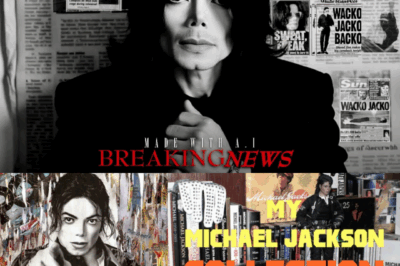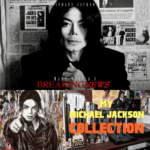Kendrick Lamar has never hidden his love for Tupac Shakur.
From referencing Pac’s legacy in interviews, to paying him homage in his own music, Kendrick has shown nothing but reverence for the West Coast’s finest. But there’s one Tupac album that didn’t fully click for Kendrick until he was older. Tupac’s last album: The Don Killuminati: The 7 Day Theory, released under the alias “Makaveli”.

Tupac’s discography was a staple in the Duckworth household during the 1990s. So The Don Killuminati, also known simply as Makaveli, was part of that rotation. In a conversation with David Drake for Complex, Kendrick explained what made that record hard to grasp at the time:
“I look back, there was so much controversy about that album that I really couldn’t understand at a young age. Him being on a cross and the 21 gun salute [‘Against All Odds].’ It was just so much aggression and I think that was ‘Pac’s greatest niche.”
The full breadth of what Makaveli stood for was lost on Kendrick as a child. But as an adult, with the full context of Tupac’s life and music, he was able to appreciate it more fully. And it is a record that is best listened to with context in mind.

(Credit: Alamy)
Makaveli was released on November 5, 1996. Tupac Shakur died on September 13th, 1996, making this his first posthumous release. In the wave of news that built up during the East Coast vs West Coast beef, and the explosion of headlines at Tupac’s death, a drop of new music took like wildfire. In its first week, the record debuted at No. 1 on the Billboard 200, selling 664,000 copies.
As Kendrick said, the album is smoking with aggression. Much of the lyrics are centred around the coastal beef and targeted at Tupac’s enemies. Even the album cover reinforces that intensity, showing Tupac crucified on a cross that’s overlaid with a map of New York.
As Pac himself said about the cover: “My album cover is me on the cross being crucified, and the cross is the map. It’s got New York, Harlem, Brooklyn—everything. And I’m on the cross being crucified for keeping it real.”
Pac’s work always had intensity, but the energy of this project was something new. That was partly due to the new identity that he assumed for the album, “Makaveli”.
The name “Makaveli” came from Tupac’s time in prison, when he read Niccolò Machiavelli’s The Prince. Pac later explained the influence that this infamous book on ruthless power dynamics had on him: “It’s not like I idolise this one guy, Machiavelli. I idolise that type of thinking—where you do whatever’s necessary to achieve your goal. So now I’m not on no bullshit or anything; I’m gonna change the rules in this rap game.”
Bringing that fresh perspective, Tupac recorded Makaveli over the course of one week. Unlike his more polished commercial hits, this project felt stripped down and unfiltered. Its features leaned underground and the production had a harder edge.
Young Noble of Tupac’s crew, the Outlawz, later told BET: “I remember him wanting it to be a mixtape… He just wanted to drop something to set the streets on fire and push the Outlawz before he got into whatever his next solo project was going to be.”
Makaveli wasn’t meant to be polished. It was meant to be felt. And for Kendrick Lamar, the album’s raw aggression ultimately became a defining lesson in the power of raw emotion in hip-hop.
News
A LEGEND NEVER DIES: 15 Years After His Passing, Michael Jackson Still Out-Earns Every Living Celebrity
It has been 15 years since Michael Jackson – the “King of Pop” – left this world, yet his influence…
The Rough Upbringing of Cold-Bl00ded Kill3r Derrick Groves: A Childhood Shaped by Viol3nce, Deprivation, and a Family Touch3d by Crime
Nearly two months after 10 inmates escaped from a New Orleans jail by crawling through a hole behind a toilet,…
The Criminal Journey of Derrick Groves: From the Bl00dy Mardi Gras Massacr3 to a Jailbreak That Sh00k America
Early Life and Criminal Background Derrick Groves, born in 1997 in New Orleans, Louisiana, is one of the most notorious…
The Queen Returns: Rihanna’s 2026 Tour Is About to Shake the World — and Fans Can’t Wait
She’s been gone for nearly a decade. No new albums, no world tours — just silence, motherhood, and the empire…
Rihanna Is Back! The Global 2026 Tour with A$AP Rocky — Fans Count Down to the “Rebirth of the Decade”!
You don’t need us to tell you that the Rihanna Navy has been starving for this moment — and it’s…
BREAKING: Drake Sets the Internet on Fire — Fans Believe He Just Took a Savage Sh0t at A$AP Rocky in New Leak!
Most of the chatter around Drake has been his UMG lawsuit loss, but he is still hard at work on…
End of content
No more pages to load












